Hello fellow thrill seekers! We are thrilled to welcome you to the enigmatic world of Stonehenge! Here colossal stones stand as silent testaments to an ancient past, enticing us to unravel the mysteries they hold. Get ready to embark on a journey through the mysteries of past that will leave you amazed as we delve into everything you should know about Stonehenge!
When we talk about Stonehenge, all that comes to the mind is a landscape shrouded in mist, a circle of colossal stones rising from the earth like guardians of a secret realm. Surrounding the Stonehenge is an air of mystery that attracts archaeologists, historians, and curious minds alike. It is indeed a marvel that has puzzled and kept the explorers captivated for generations.
In this blog we will be uncovering the tales behind these massive stones.
Ever wondered why it was built? Was it a celestial observatory? A sacred temple? Or perhaps a mystical portal to some unexplored realms? We’ll explore the myriad of theories that revolve around this iconic site, and shed light on its possible purposes.
But that’s not all! We’ll also satiate your hunger for knowledge by exploring the interesting methods our ancestors might have employed to transport and arrange these massive stones in the position that they are in today. Get ready for an interesting ride as we reveal the secrets behind moving megaliths and erecting wonders that have stood the test of time.
We welcome you to join us on this quest where we unravel the tangled web of history, archaeology, and mystery that surrounds it. Whether you’re a history buff, an eager wanderer, or just someone curious to know the enigma behind Stonehenge, this blog promises to be an entertaining ride. Let’s get started!
Stonehenge: An Unveiling of Ancient Marvels
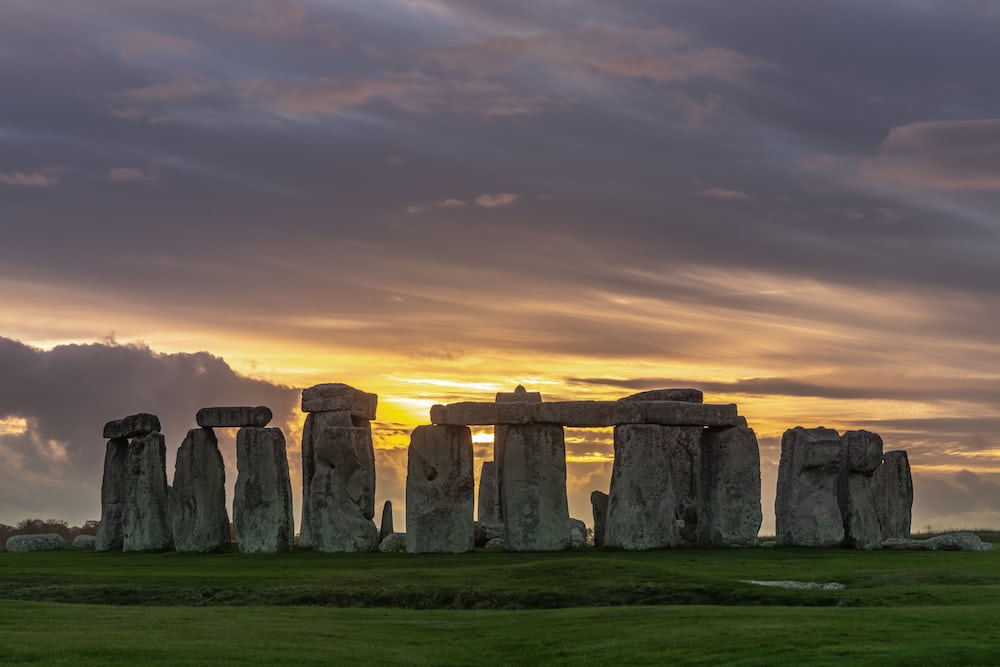
Get ready to step into a world of mystery and marvel as we embark on a journey through the enigmatic Stonehenge. This iconic monument, nestled on the Salisbury Plain, is a source of fascination for centuries. It captivates the imagination of scholars, explorers, and curious minds alike. So, without further ado, let’s dive deep into the heart of this monument and uncover its secrets.
The Origins: A Monumental Puzzle
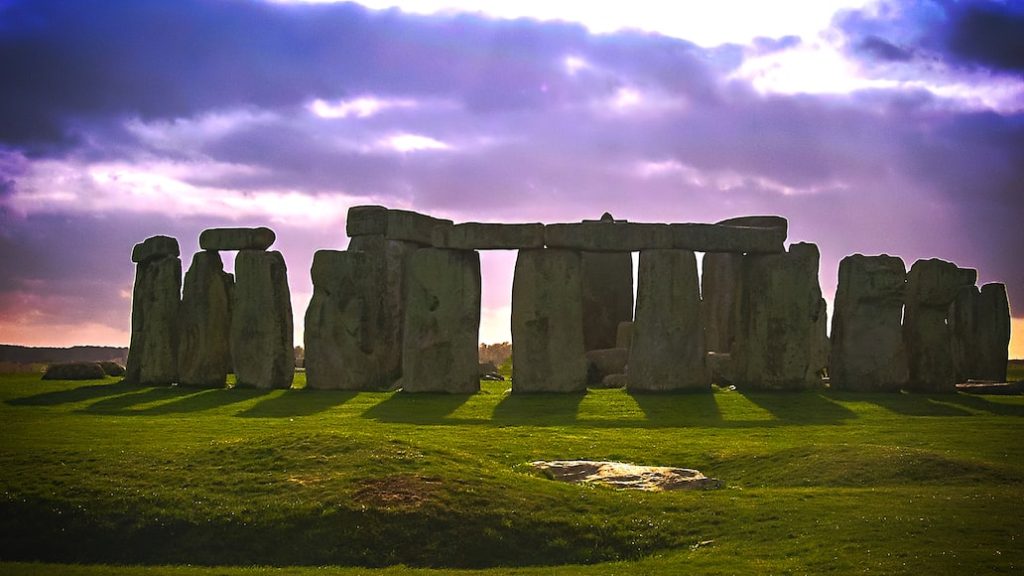
The story of Stonehenge began over 5,000 years ago, in the Neolithic period. This is when our ancestors started to shape and mould the landscape around them. The construction of Stonehenge involved several phases, with the earliest monument dating back to around 3100 BCE. When you visit the site, you’ll see the outer circle of massive sarsen stones, some weighing even up to 50 ton. These are surrounded by an inner horseshoe arrangement of bluestones, that were transported from the Preseli Hills in Wales.
A Dance of Megaliths: The Construction of Stonehenge

The sight of Stonehenge – a circle of massive stones standing tall against the backdrop of the English countryside – invokes a sense of amazement and wonder. But how were these colossal giants brought to life? While equipment like cranes and machinery would be the tools of choice today, the builders of Stonehenge used ingenious techniques to achieve what we see today.
Stonehenge’s journey started around 3100 BCE and is believed to have been constructed in different stages. The smaller bluestones, are believed to have been transported from the Preseli Hills in Wales. They started on an impressive overland journey, covering nearly 150 miles before reaching their final destination. But that’s not all! The huge sarsen stones, which form the outer circle, posed an even greater challenge. These massive stones, each weighing around 25 tons, were brought from Marlborough Downs, about 20 miles away. It’s said that a combination of sledges, rollers, and perhaps even waterways were used to transport these gigantic stones. This explicitly showcases the resourcefulness of our ancient ancestors! Amazing isn’t it?
Ingenious Construction: Moving the Stones

The process of transporting and erecting these colossal stones remains one of Stonehenge’s most intriguing mysteries. Imagine the hustle and bustle of ancient engineers as they hauled these massive monoliths using sledges and rollers. The mind-boggling feat of lifting these stones into place defies the technological limitations of the time. It’s a true testament to human determination and innovation.
Rituals and Reverence: The Purpose of Stonehenge

While the method of construction is indeed awe-inspiring, the purpose of these stones remains shrouded in mystery. What is the purpose of Stonehenge? Is it a sanctuary for celestial observations? Is it a sacred site for religious rituals? Or is it a communal gathering place for ancient ceremonies? The possible answers are as diverse as they are intriguing.
One theory suggests that it served as a celestial observatory, aligning with key astronomical events like the solstices and equinoxes. This alignment is no accident. Now why do we say this? Because the layout of the stones reveals a profound understanding of the movements of the sun and the moon, enabling its builders to mark significant moments in the annual calendar. As the sun rises or sets, it perfectly aligns with specific stones. It’s believed that it played a pivotal role in ceremonies related to the changing seasons.
Guardians of the Cosmos: Stonehenge and Astronomy
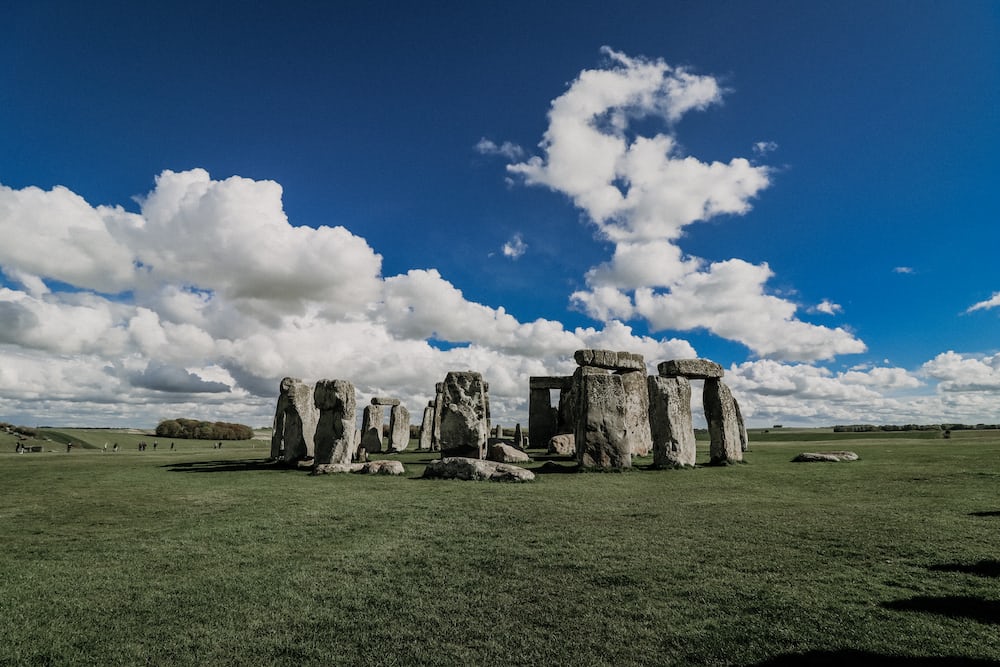
As the sun sets below the horizon and silence takes over the Salisbury Plain, Stonehenge rises with a celestial purpose. The connection between Stonehenge and astronomy is more than just speculation. It’s a testament to the incredibly advanced knowledge and intricate planning of the builders.
During the summer solstice, an event that marks the longest day of the year, it becomes a place of cosmic wonder. People gather to witness the sunrise perfectly aligning with the Heel Stone, casting a warm and radiant glow upon the ancient altar stone. This breath taking view is a testament to the meticulous alignment of the stones and the deep understanding of the celestial dance that surrounds our world.
Legends, Lore, and the Unexplained
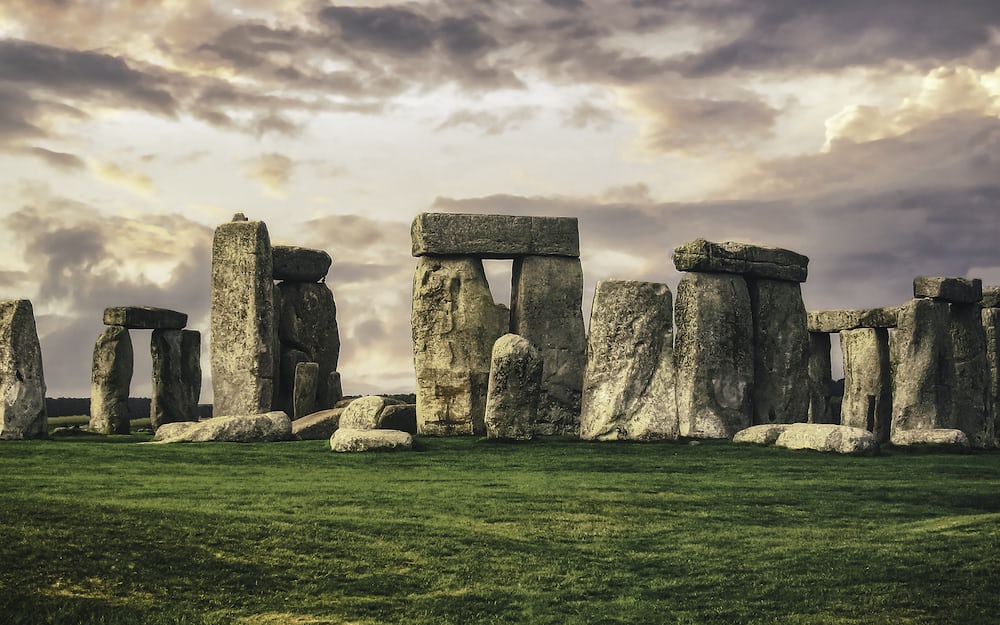
Exploring the Stonehenge would be incomplete without discovering the realm of myths, legends, and unexplained phenomena that surround this ancient wonder. Throughout history, Stonehenge has inspired tales of magic, giants, and even Merlin the wizard. The charm of these stories adds an extra layer of enticement to the site, adding on to the imagination of those who visit.
One of the most enduring mysteries is the origin of the bluestones. How did these smaller stones, which originated in Wales, make their way to Salisbury Plain? It seems as if the journey would have been an incredible feat. This leads to speculation about whether the stones were transported by glaciers during the last ice age or by humans through absolute determination.
Preservation Efforts: Guarding an Ancient Legacy
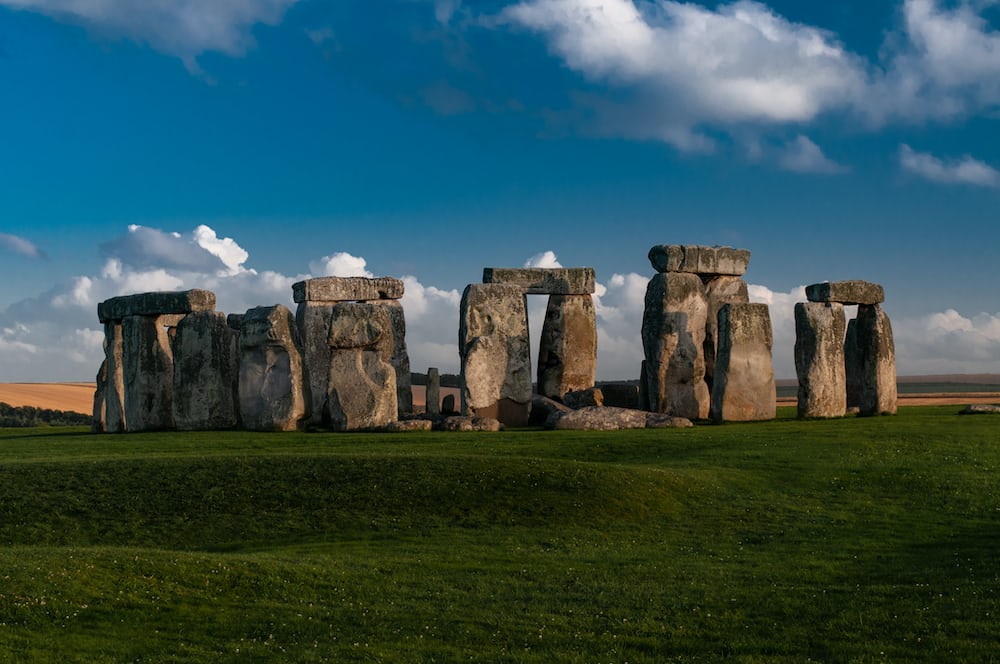
As we explore the path of history, it’s important to acknowledge the preservation efforts that protect Stonehenge for future generations. Visitors are not permitted to touch the stones, a precaution taken to prevent erosion caused by human contact. We can’t physically connect with the stones like our ancestors once did. But we can still connect with their spirit and wonder, and admire their enigmatic beauty.
A Window into the Past: Stonehenge’s Timeless Legacy

In this journey through the captivating world of Stonehenge, one thing becomes evidently clear. This ancient beauty is more than just a collection of stones. It’s a gateway to the past, a bridge between ancient civilizations and our modern understanding. With each passing year, new discoveries and insights continue to add on to our understanding of its purpose and significance.
Whether you’re an ardent historian, an avid traveller, or just someone fascinated by the mysterious past, Stonehenge is yours to explore! Let it be your guide to a world where time stops and ancient secrets whisper into your ears. As you look on its weathered stones and imagine the rituals that once took place within its circle, remember that you are part of a long lineage of curious minds. Those curious minds that seek to unlock the enigma of Stonehenge – a monument that stands as a testament to the power of human determination, connection to the cosmos, and the eternal quest for knowledge.
Final Thoughts
As we bid farewell to this journey through the captivating realm of Stonehenge, we stand at the crossroads of history and imagination. The stones that have held their ground for several years, continue to whisper their secrets to those who are eager to listen. From its enigmatic origins to its religious and spiritual significance, Stonehenge has proven itself to be an eternal mystery that refuses to give all answers.
So, fellow explorers and curious minds, as we wrap up our adventure, we hope you enjoyed the wondrous tales we’ve uncovered. Stonehenge shows the tenacity reflected by ancient engineering. We’ve tried to explore the “whys” and “hows” that have echoed through the ages, and we’ve also got on a quest to connect with a distant past that continues to shape our present.
Remember, the story of Stonehenge is not just etched in stone. It lives on in the hearts of those who have been touched by its magic. As you recall the beauty and enigmatic nature of Stonehenge, let its mystery inspire you to keep asking questions, seeking truths, and venturing into the unknown.
Whether you’re planning a visit to this ancient marvel or thinking of exploring something, let the spirit of Stonehenge remind you that the world is full of wonders waiting to be explored. As we bid goodbye to this exciting adventure, let’s carry its enchantment with us, keeping our sense of wonder alive and our curiosity burning bright. Until next time, fellow adventurers, we wish your paths be as intriguing and captivating as the enigmas of Stonehenge!
FAQs
Stonehenge was built over several stages, with the earliest construction starting somewhere around 3100 BCE. The final additions to Stonehenge were completed around 1600 BCE.
How was Stonehenge built?
Stonehenge’s gigantic stones were most likely transported with the help of sledges and rollers, and its construction process involved a combination of processes like digging, lifting, and arranging the stones in a circular and concentric pattern.
The exact reason for the use of Stonehenge still remains a subject of debate among scholars, but it is believed to have served as a ceremonial and religious site, possibly used for rituals, making astronomical observations, and honoring the ones who have passed away.
Yes, Stonehenge was built in the Stone Age. It was actually built during the Neolithic period, which is commonly referred to as the Late Stone Age.
Why can’t you touch the stones at Stonehenge?
It’s prohibited to touch the stones at Stonehenge. This is done to preserve the efforts that have been put in to create Stonehenge. Also, due to the large number of visitors, restrictions have been put on touching the stones in order to prevent damage and erosion that is caused by human contact.
There are various mysteries associated with Stonehenge. Out of all the mysteries, one of the greatest mysteries of Stonehenge is how the massive stones were transported over long distances and raised into their current position using the very limited means available during that time.
What is the main purpose of Stonehenge?
The purpose of Stonehenge is not very clear but the primary purpose of Stonehenge is believed to have been related to performing certain rituals, ceremonies, and possibly making some astronomical observations, all of which depict the cultural and spiritual significance of the site.
The story of Stonehenge revolves around how it was constructed remarkably using the ancient engineering techniques and what role it plays as a place of spiritual and cultural significance to the people of the Neolithic era.
It is not exactly known who built the Stonehenge, but it is believed to have been constructed by various Neolithic and Bronze Age communities. Its purpose is generally associated with the performance of religious practices, social gatherings, making astronomical observations and possibly honouring the ancestors.
Stonehenge’s aura of magic and mystery is alleviated by its ancient origins, massive stone structures, and the sense of connection that it offers to the mysterious past. The site’s connection with celestial events adds to its mysterious nature and contributes to its image as a place of absolute wonder and enchantment.


